Karl Marx (1818-1883)
did not have a theory of morality; he had a theory of history. Thus, Marxism was not about right or wrong but about what will happen in history. Marx was contemptuous of people who judged things in moral terms. When diehards say that Marxism has actually never been "tried" (despite what Lenin, Stalin, Mao, Castro, Ho, and Daniel Ortega thought they were doing), they don't understand that Marxism was not a rule for behavior or a program for action; it was supposed to be the theory of a deterministic mechanism that will produce the future, a theory of actions that will arise spontaneously because of historical circumstances -- although we can infer what kinds of actions people, including ourselves, will be taking -- after all, Marx said that the purpose of his work was to change the world, not just understand it. It is the theory, however, the world will change because of the objective economic conditions, not because of some decisions we make. This was not a theory about "human nature" or "human psychology," but about how the mode of economic production (how goods and services are produced) determines all the other political, social, cultural, and moral structures of a society (though some Marxists are uncomfortable with this in an absolute sense). The needs of the "English petty bourgeois" are thus not "false needs", however dismissive Marx sounds, but true needs in relation to a capitalistic mode of production -- needs which will change over time, in a historicist sense, as the mode of production changes. As a "science" of history, Marxism would succeed or fail to the extent that it could actually predict the evolution of production and its various effects.
Marx thought that as capitalism had replaced feudalism with a new mode of production, which was more productive and efficient, the same thing would happen to produce a replacement for capitalism. In the end, as the workers were impoverished (when capitalists drove down wages) and the number of capitalists dwindled (as competition was replaced by larger and larger monopolies), the capitalists would end up with no one to sell their goods to and nothing to do with the capital derived from their profits. This would produce increasingly severe credit and banking crises, until the proletariat would easily tip over the whole rotten structure and replace it with a classless society.
Centralisation of the means of production and socialisation of labour at last reach a point where they become incompatible with their capitalist integument. This integument is burst asunder.
Already in this we find the essence of the fallacy of Marxist economics. Marx believes that as the dialectic of history evolves new modes of production, greater productivity and greater wealth will be created, ultimately eliminating the need for alienated and exploited labor. However, there is not a variable in Marxist value theory to account for greater productivity. If labor (or "socialy necessary" labor) creates value, then a greater quantity of labor will create greater value, but only in quantity, not in kind. More labor for pyramid building just builds more pyramids. Thus, some other variable is involved besides labor. In fact, that is capital. Labor intensive production gives way to capital intensive production, and greater capital means great productivity, not just in quantity, but in kind. But Marx does not believe that capital exists, which is why capitalism is called "capitalism." This means that Marxism cannot explain increased productivity. And then Marxism also contains another trend disparaging to productivity as such. Jack London, less well remembered now as a communist than as an author, said that a worker who is more productive than others "is already a scab," i.e. a strike breaker. Thus, the view seems to be than increases in producitivity are part of the exploitation of labor.
Unfortunately, without such increases, 90% of labor would still be involved in agricultural production, while in the United States that is now less than 2% of labor, the rest of which goes into producing other things. Those "other things" are what pose the problem for an economic system like Marxism. Since British industry was largely involved in building railroads in Marx's day, he seems to have actually believed that, once the railroads were built, there would be nothing for that workforce, or its capital, to do. But this is the key to the whole meaning of capital. Capital is knowledge. Capital is imagination. Capital investment may be thought of as the construction of machinery, but the machinery, with its use and purpose, must first be conceived. The new purposes require that new products be thought of. But then with the conception of new products, new uses, and new purposes, the machinery may only be one element, or no element, in it. Simply a different way of doing things represents new knowledge and new capital. Thus, we have idea in modern economics of "human capital," where some people simply know how to do things better than others. Also, the value of capital can simply evaporate in misconceived investments. "What is sunk is sunk," is the principle: bad investments, into which capital has been sunk, must at some point be written off. It is "sunk."
Marx's thesis of the fictional nature of capital is thus equivalent to his lack of imagination regarding what it would be possible for people to do with their capital. That entirely new products and industries could be conjured up, to be brought to life with capital investment, was a process that was simply off the radar of Marxist economics. Perhaps he thought that the unexploited workers would sit down one day and simply begin producing cell phones, with the conception perhaps spontaneously coughed up by the Hegelian dialectic. No. Since Marx was the kind of person who would never know what to do with capital, he did not believe there was anything to do with it. This is still about the level of economic understanding of much modern political discourse. It is worse with human capital. The tradition of many people, often ethnic minorties, in starting and running small businesses, which represents a profound body of knowledge, more easily learned at one's mother's knee, next to the cash register, than even in business school, elicits from the Marxist only suspicion, condemnation, and hatred. The people who typically run small businesses, we know, like the Jews, together with the Chinese in Southeast Asia, Indians in Africa (or the neighborhood Seven Eleven), or Koreans in Harlem, are simply engaged in small scale capitalist exploitation -- they are the "petty bourgeoisie" who will be eaten up by growing monopolies. For the enlightened, the bien pensants, they merit only contempt. The idea that they are the source, not only of economic success for minorities or individuals, but of revolutions in production for the economy as a whole, where both the Ford Motor Company and Apple Computer started in someone's garage, is only met with dumb incomprehension and incredulity -- even from people whose own family, as with many Jews, contains just such a history of innovation and success from small roots.
Thus, since Marx did not believe in capital and did not understand the sources of innovation and invention, the elimination of small business and small entrepreneurs by monopoly capital was not only expected but was regarded as a desireable feature of the process. With surviving employed labor concentrated in large corporate entities, and the capitalists left with nothing to do with their capital and few consumers with the means to purchase capitalist production (given vast unemployment and employed workers paid only subsistence wages), the revolution would more or less happen of itself when the system collapsed in a panic of banks and investors. History would thus flow in the following way:
However, although nominal wages were falling in the United States from 1865-1897, apparently in line with Marxist expectations, real wages were actually rising, and there didn't seem to be a problem with over-production or with capital investment. Marx's own data showed rising real wages, as in Britain they rose by 80 percent in the last half of the 19th century. Recognizing that things weren't going as predicted, Lenin (Vladimir Ulyanov, 1870-1924) proposed that colonialism and imperialism were relieving the stress on capitalism and had temporarily derailed history: Colonies were a safety valve for excess capital and over-production; and the exploitation of colonies enabled the capitalists to buy off the proletariat at home. But Lenin's own data showed that most foreign investment was in other capitalist countries, and it is hard to imagine how an impoverished colonial population could buy things that the proletariat back home couldn't afford. Nevertheless, Lenin's theory at least addressed the issue. He therefore saw the flow of history in these terms:
When the Russian Revolution came, Lenin and his colleagues had to address the paradox that according to orthodox Marxism Russia was not ready for a real communist revolution, since it had never passed through the necessary stage of capitalism itself. Although developing quickly enough, and the fourth largest economy in the world in 1914 just because of its size (it had been the largest through much of the 19th century), Russia was still largely a feudal society. Lenin died before much sense could be made of the situation, especially when his programs caused the economy to collapse and he had to retreat from an attempt at pure communism into the semi-market economy of the New Economic Policy (the NEP). Subsequently, Stalin (Iosif Dzhugashvili, 1879-1953) followed the principle that the Russian Revolution would substitute a benign replacement for capitalism, namely "socialism," which would do the same job of industrialization without capitalist exploitation. Meanwhile, the new Russian state, the Soviet Union, would fight against imperialism and work for de-colonization and national liberation. If imperialism and colonialism could be ended, then capitalist economies would revert to the dynamic described by Marx and communism would develop there in the natural way. Stalin thus saw the flow of history in this way:
With the Great Depression, which looked like just the sort of credit and production collapse that Marx had predicted, and which gave many Westerners the impression that Stalin's programs were producing better results in the Soviet Union, things seemed to be getting back on track. Then, when capitalist countries joined in to help defeat what should have been their own best hope, fascism, things really started looking up. The post-war world then began to see the start of de-colonization. For fear of "neo-colonialism," newly independent countries were advised to nationalize foreign holdings and limit capitalist exploitation (i.e. foreign investment). Stalin's Five Year Plans were seen by people like the new Prime Minister of India, Jawaharlal Nehru (1889-1964), as the proper way to modernize an economy.
Over the years, however, the countries that took this kind of advice the most seriously experienced only failure and stagnation. Nehru's great plans in fact condemned India to many decades of little improvement in its standard of living. But India was in good shape compared to Africa. By the late 80's, most former African colonies had lapsed into military dictatorships under which the standard of living was actually lower than it had been when they were colonies. All the modernistic and socialistic rhetoric of the original leaders of African independence, like Kwame Nkrumah (1909-1972) in Ghana, had turned out to be nothing but a mask for incompetence, corruption, and naked power. Instead of foreign investment, African leaders demanded foreign aid delivered directly to them. Most of that was either wasted on useless projects or diverted into their own pockets: leading to the bitter characterization of them as "Swiss bank account socialists."
Meanwhile, the once admired economy of the Soviet Union showed what it was truly made of: corruption, inefficiency, and irrationality on a vast scale. Although everyone expected that the Soviet Union's own economic statistics were unreliable, even the CIA greatly overestimated the size of the Soviet economy -- today one even hears the accusation that they did this deliberately to magnify the Soviet threat and perpetuate the Cold War (pursuant to the bureaucratic self-interest of the CIA -- which means that such an accusation could originate either from attacks on capitalism or simply from attacks on big government and bureaucracy). Outside of Moscow and Leningrad, which were bad enough, the Soviet Union was virtually a Third World country. One result today is that many who still admire Marxism and socialism have decided that it is virtuous to be poor, and that the ruined and miserable economy of a place like Cuba is a desirable "ecotopia" -- kinder to the environment than capitalism. This would be profoundly astonishing and mortifying to Karl Marx himself: the whole point about the evolution of communism is that it would be more productive and produce greater wealth for all than capitalism. A socialism that simply perpetuated poverty would be worthless -- a return, indeed, to what Marx called "oriental" despotism and a slave economy. Yet, as I have noted, it is the inevitable logical consequent of the denial of the existence of capital that the means of the development of greater production and greater wealth would themselves be destroyed. The fate of Marxist economies demonstrates this beyond a doubt.
The Marxist-Leninist Theory of History, Note 1
"Human nature," "human psychology," and "false needs" are quotes from the ethics textbook I have used, Moral Reasoning, by Victor Grassian, p. 59. Grassian seriously misunderstands Marx, where human nature in an important sense doesn't even exist, and human psychology will be no more than a function of the "objective conditions" of production. The idea of "false needs" is not to be confused with "false consciousness," which is when someone who is not a member of an oppressor class is deceived into having the views of that class. Thus a wage laborer who believes in the free market is afflicted with "false consciousness." According to Marxism, such beliefs need not be credited or addressed on their own merits, which of course logically leads, as it did in historical fact, to a totalitarian dictatorship where the views of people are irrelevant next to the "scientific" knowledge of the dictators.
The Marxist-Leninist Theory of History, Note 2
Although communists liked to see fascism as the ultimate expression of capitalism, and fascism did nominally leave property in private hands, fascism and communism nevertheless had more in common with each other than with capitalism, since each was a collectivist ideology that subordinated individual interests to the purposes of the State. It was no coincidence that both Hitler and Mussolini came out of the socialist movement, and Lenin himself had praised Mussolini as the great champion of the Italian socialist party in the days before World War I. Later, Hitler's own best role model for ruthless police state power was Lenin. Both communists and fascists knew that the opposite of both ideologies was the despised "liberalism."







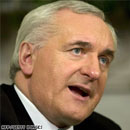
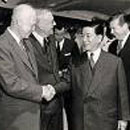




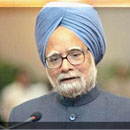
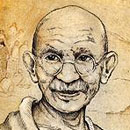
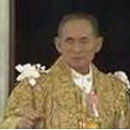
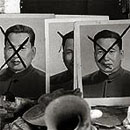










0 comments:
Post a Comment